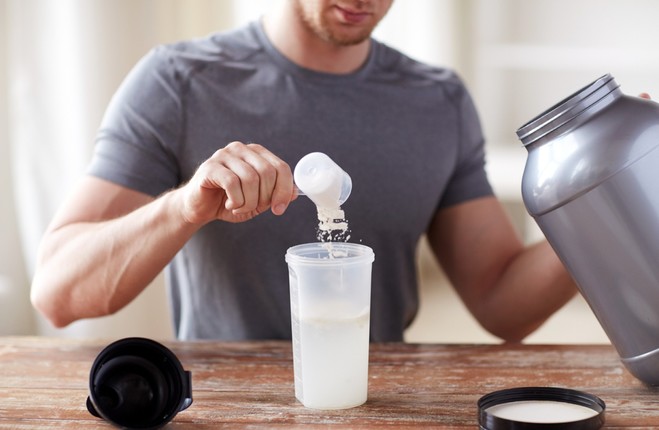CREATINE IS ONE of the most tested substances on the supplement market today.
This ‘magic powder’ has been the subject of good and bad publicity over the past few years. In this article we will give you the hard facts from scientific studies.
Creatine is produced naturally in our body from three amino acids:
- Arginine
- Glycine
- Methionine
Once created it is shuttled to skeletal muscle where it is used or stored. Our muscles have a finite amount of creatine that can be stored.
Source
Red meat, fish and eggs are great natural sources of creatine. Alternatively, creatine can be supplemented with creatine monohydrate which comes in powder form. Several scientific studies have shown that creatine monohydrate supplementation in association with optimal training can:
- improve high intensity exercise performance
- increase lean muscle mass
- increase muscle strength and power output
These results are obviously important to athletes who need to produce short periods of maximum intensity efforts in sports such as sprinting, Olympic weightlifting, shot put and sprint cycling.
Creatine monohydrate supplementation may also aid those playing field sports such as Gaelic football, hurling, rugby, hockey and soccer as repeated bouts of high intensity efforts occur in these sports.
Guidelines
Most scientific studies have shown that 0.3g of creatine per kg of bodyweight should be used for the first 3-5 days, this period is what is called a ‘loading phase’.
This initial loading phase is used to saturate the cells with creatine. After this you simply use 5g every day thereafter for 6 weeks. A lower daily dose of 3-10g can be taken for a longer period of time with reported similar results.
Side effects
So is creatine safe to take for an extended period of time? Short, medium and long term peer reviewed scientific papers have researched and concluded that creatine has no detrimental effects on kidney health.
Some studies have reported that creatine supplementation can cause stomach cramping, nausea or diarrhea, but this generally occurs when too much is ingested in one sitting or the dose is not taken with enough water or juice.
During the loading phase for example, an 80kg athlete needs to take 24g of creatine each day. To reduce these symptoms occurring the dose should be taken in 6x4g servings.
In association with Elite Physical Prep. Check out their website, Twitter or Facebook for more information.

